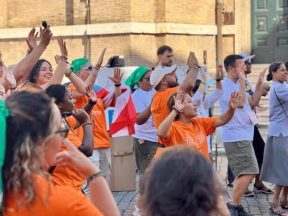Comboni Missionaries, 70 years in Ecuador.
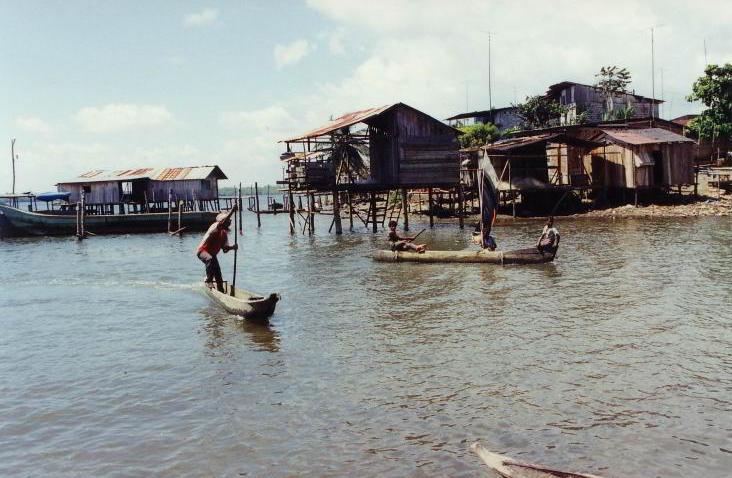
Seventy years ago, the Comboni presence in Ecuador began in Esmeraldas, in the north of the country, on the border with Colombia. Since then, three bishops and about 60 missionaries, priests and brothers have dedicated their lives to announcing the Gospel to a population mostly of African and indigenous origin.
The first group of missionaries arrived in Esmeraldas on April 13, 1955. The pioneers of the Comboni presence were Fr. Angelo Barbisotti, who was soon after consecrated the first bishop of the apostolic vicariate (1958), Fr. Luis Marro and Brother Ángel Fusetto.This was the first step in responding to the desire of Pope Pius XII, who entrusted the pastoral care of Esmeraldas, with a majority of Afro-descendant, to the Comboni Missionaries, by their experience in Africa and the situation of extreme social and religious poverty of this population.
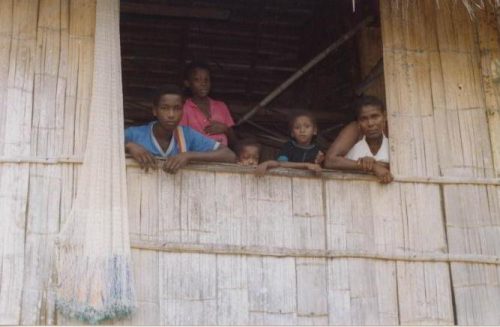
Due to their experience in Africa, Pope Pius XII entrusted the pastoral care of Esmeraldas, with a majority Afro-descendant population, to the Comboni Missionaries. File swm
At first, there was much reluctance on the part of the Congregation. The Comboni Missionaries considered themselves “special envoys” in the missions of Africa, both for the charism of the founder, St. Daniel Comboni, the first bishop of Central Africa, and for the work carried out for a hundred years in the countries of the African continent. Some objections were raised at the Holy See, insisting on the lack of missionaries and the urgency of the missions in Uganda and Sudan, nations close to political independence. However, the Vatican did not change its decision, having already entrusted two missions in Peru to the Comboni Missionaries of the German branch and two others in Brazil and Mexico to those of the Italian branch.The province of Esmeraldas was then in a marginal situation compared to the rest of the country: there were no roads or electricity; health centres and educational facilities were minimal. From a spiritual point of view, the lack of personnel had led to the almost total abandonment of the population.
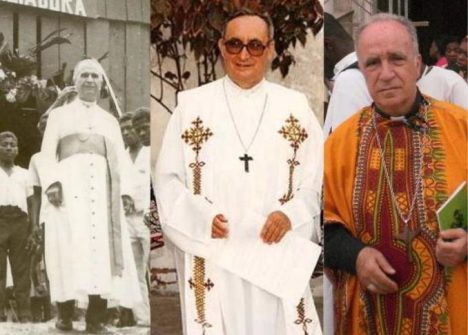
The three Comboni Bishops who served in the Vicariate of Esmeraldas. From left: Mons. Angelo Barbisotti, Mons. Enrique Bartolucci and Mons. Arellano Fernández Eugenio.
Shortly after his arrival, Father Barbisotti wrote about this: “In our first missionary journeys, we met many people endowed with genuine natural goodness, but who, through no fault of their own, are devoid of any doctrinal knowledge. They ignore the plan of salvation, grace, the richness of the faith and of Catholic morality. For the great majority, the Gospel is an unknown book, religion is reduced to a vague confusion of superstitious practices, formulas and objects with no Christian content.”
The first stage of the Comboni Missionaries’ presence in Esmeraldas was characterised by a great pastoral impulse and saw the implementation of numerous activities (catechesis, visits to families, training of leaders, etc.) in the regional capital and in other cities, especially San Lorenzo, Limones, Quinindé, Muisne and in the villages along the rivers. In that period, numerous missionaries, priests and brothers, as well as Comboni Missionary Sisters, arrived, and the province experienced a period of great expansion and construction of important works: parishes, schools, dispensaries, social promotion centres, technical schools, etc.
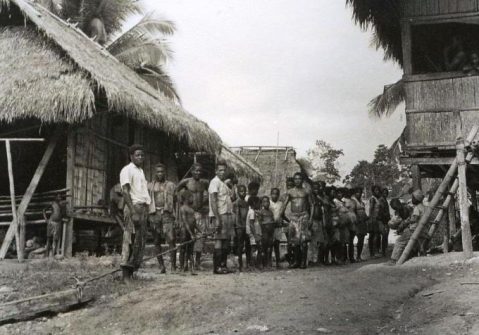
Esmeraldas’ province was one of the poorest in the country at the time. File swm
The pillars of this impressive missionary activity were the spiritual accompaniment and human promotion of the population of Esmeraldas. The task was not easy”, wrote the first missionaries, “especially because of the dispersion of the inhabitants in a territory that was vast and often difficult to access. It was routine to become familiar with travelling long distances by canoe, despite the strong river currents – on horseback or on foot; prepared for all the breakdowns and the unforeseen and unforeseeable difficulties”.
On June 14, 1973, Pope Paul VI appointed the Comboni missionary Enrique Bartolucci as bishop of the vicariate of Esmeraldas, replacing the deceased Monsignor Angel Barbisotti. In the following years, priests, religious and lay people, both local and foreign, arrived in the diocese to collaborate in the work of evangelisation of the Church of Esmeraldas. At the same time, the Comboni Missionaries were asked to support the Afro-Ecuadorian population and to engage in the missionary animation of the local Church.
Starting in 1976, the Comboni Missionaries took on new pastoral commitments in the dioceses of Manabí, Quito and Guayaquil. In 1982, the Comboni presence also extended to Colombia, with communities in Cali, Bogotá and Medellín. In 1995, the Spanish Comboni priest Eugenio Arellano was appointed the third bishop of Esmeraldas.
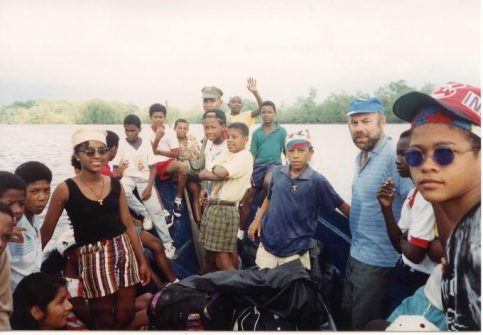
A Comboni Missionary, Fr. Enzo Balasso, with youth from the St. Lorenzo community.
Over time, the presence of the Comboni Missionaries diminished. In 2021, Monsignor Arellano, bishop and apostolic vicar of Esmeraldas, reached the age of retirement and resigned. He was replaced by Monsignor Antonio Crameri, of the priestly society of Saint Giuseppe Benedetto Cottolengo. The Comboni Missionaries are still present in Esmeraldas, in the parish of La Merced, and in the cities of San Lorenzo and Borbón. They left behind a local Church full of vitality and evangelising zeal, undoubtedly infected by the missionary spirit
of Saint Daniel Comboni.
On the occasion of the celebration of 70 years of Comboni presence in Esmeraldas, a wreath of flowers has been placed on the tombs of Monsignor Angel Barbisotti and Monsignor Enrique Bartolucci at the entrance of the cathedral, in memory of the approximately 60 Comboni missionaries who passed away in Esmeraldas. Others have taken up the baton, and, thanks to this testimony, several Comboni missionaries of Ecuadorian origin proclaim the Gospel in other parts of the world. (Open Photo: The Esmeraldas Province in the ’60s. Archive)
Francisco Carrera



